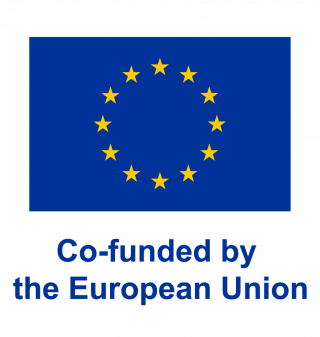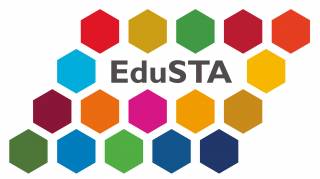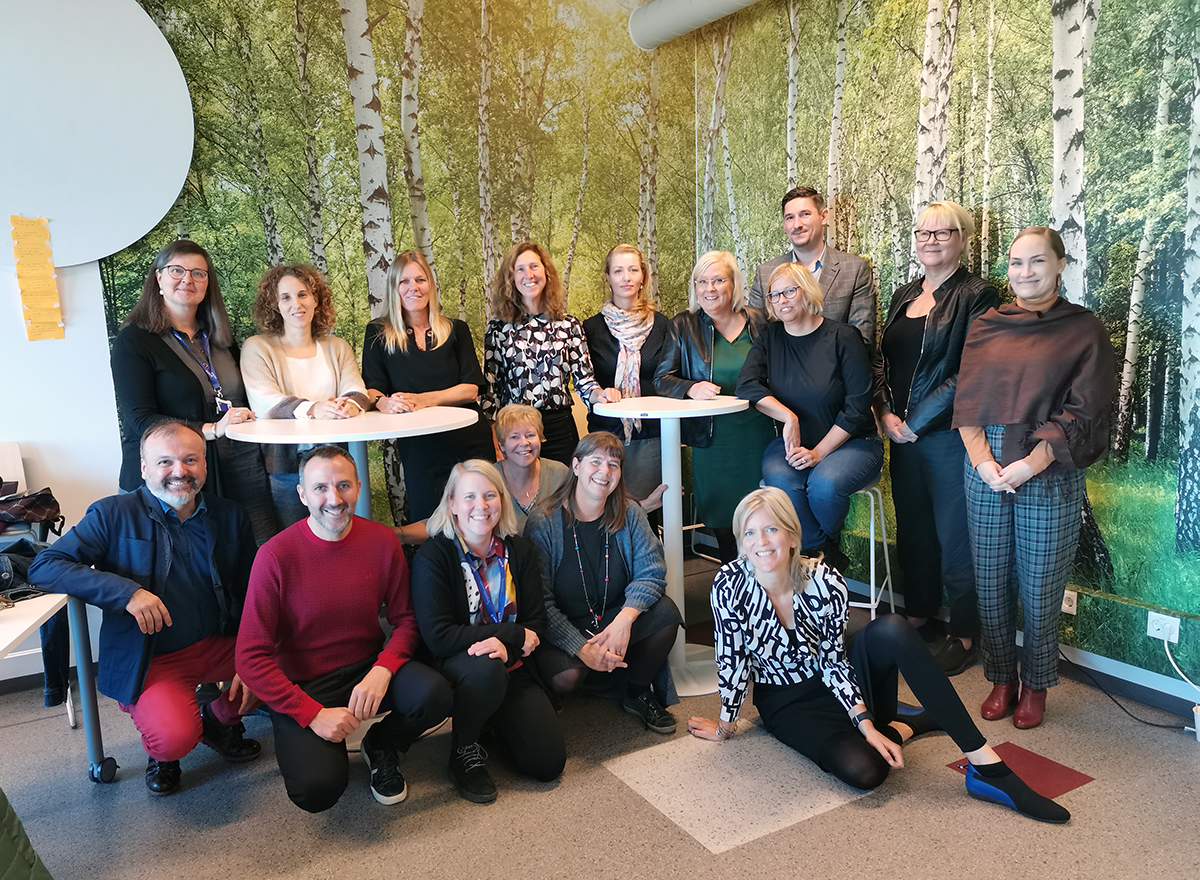Tampere University of Applied Sciences (TAMK)
A leading partner, Tampere University of Applied Sciences (TAMK), is one of the forerunners in the development of open digital badge-driven learning pathways, which are directly linked to the ongoing development of micro-credentials contributing to the aspirations of a harmonised European Education Area.
TAMK is a multidisciplinary, international higher-education institution located in Tampere, Finland. TAMK has approximately 10,000 students and is committed to educating graduates who are able to promote sustainable development in their work and in the society. TAMK expertise ranges from engineering to business and entrepreneurship, from vocational teacher training to health care, with a special emphasis on practically-oriented education and R&D activities. All of its activities have a strong pedagogical focus. TAMK is one of the five host schools for vocational teacher training in Finland.
TAMK is one of the five Finnish UAS (university of applied sciences) providing professional teacher education. The institutions work intensively together, for example, in organising in-service training for teachers and developing learning recognition through open digital badges. TAMK offers the following training in the field of teacher education: Professional Teacher Education, Professional Special Needs Teacher Education, Professional Guidance Counsellor Education, and Pedagogical Studies for TAMK Music Pedagogue students.
University of Gothenburg (UGOT)
Department of Education and Special Education at the Faculty of Education at the University of Gothenburg offers basic and advanced-level single-subject courses in Swedish and English on education, special education, and language didactics. There are two postgraduate programmes available in English: an international master’s in Education, and a PhD programme. The department also runs courses on Human Resource Development and for school principals.
The Department of Education and Special Education offers several teacher programmes, both for undergraduate and doctoral studies. The programmes are offered only in Swedish.
Programmes offered at the doctoral level in the department are:
- Special Teacher Programme
- Special Educational Teacher Programme
In addition, the department offers the Vocational Studies Teacher Programme (90 credits), which provides comprehensive training to those interested in working as a teacher in the vocational sector. https://www.gu.se/pedagogik-specialpedagogik/academy-for-sustainable-future-educators-edusta-project
Hanzehogeschool Groningen (Hanze)
Hanze University of Applied Sciences, Groningen, offers a wide variety of international bachelor’s and master’s programmes, and certificate and exchange courses. The school is located in the vibrant student city of Groningen in the north of the Netherlands. Applied research and innovation is highly integrated in the academic programmes.
Hanze’s UNESCO Chair on Futures Literacy in Higher Education aims to empower the next generation and to foster resilience in areas in need of new ideas. The team strives to implement futures literacy as a capability in higher education through both research and a wide range of applied practices, training programmes, and long-term projects and partnerships.
Hanze’s Centre of Talent, Teaching and Learning is a network organisation that serves and brings together all partners who value the quality of higher education (including research universities and secondary and vocational education). The three professorships at the Centre conduct educational research within and outside Hanze UAS, while working together with teachers, researchers, students, staff members, and field professionals.
University of Girona (UdG)
University of Girona (UdG) is located in the city of Girona and has been a part of the Catalan public university system since 1992. Deeply rooted in Catalonia and the Catalan culture, the UdG is one of the primary economic and cultural motors of the region while simultaneously pursuing a vocation of universality and openness to all traditions and cultures.
UdG is a public institution devoted to excellence in teaching and research that strives to contribute to the development and progress of society through the creation, transmission, dissemination, and review of knowledge related to sciences, technology, humanities, and arts. Research at the UdG is carried out in more than 100 research groups associated with 22 departments and 12 research institutes. A considerable part of this research is conducted in international contexts, where the UdG has gained comprehensive experience in the management and coordination of international and European grants.
In the EduSTA project, the University of Girona can contribute its expertise as the centre for pre-service and in-service teacher training during early childhood and primary and secondary education. All members of the research team are directly involved in teacher training and have experience with the coordination of teacher-training undergraduate and postgraduate programmes. Furthermore, all members are part of the GRECA research group, which has been working on environmental and sustainability education for over 25 years.
The Czech University of Life Sciences Prague (CZU)
Institute of Education and Communication at Czech University of Life Sciences Prague (CZU) has the most environmentally friendly campus in the Czech Republic and achieved the 31st place in the Green Metric World University Rankings.
The Institute of Education and Communication is a teaching and research unit of the Czech University of Life Sciences Prague that provides pedagogical and didactical training for future VET teachers. The institute offers two accredited bachelor study programmes: “Pedagogy for Teachers of Practical Training” and “Career Guidance and Counselling in Education”. In addition to that, several lifelong learning courses for the development of professional competences and soft skills of in-service teachers are available.
The IEC cooperates with approximately thirty Czech vocational secondary schools, which welcome IEC students for practical training every semester.
The staff of the Institute of Education and Communication focus their research activities on the development of teacher competences, transferable competences, cross-curricular links in vocational education, modern didactic methods (learning by experience, collaborative and critical thinking methods), evaluation in education, career guidance, and sustainable development in education.
Associate partners
The Association for Teacher Education in Europe (ATEE)
The ATEE as an associated partner ensures that the project can engage colleagues all over Europe, for example, to pilot individual learning journeys and the recognition of learning through open digital badge-driven learning, recruit participants to pilots, and to disseminate the results effectively.
The Association for Teacher Education in Europe (ATEE) is a membership-based international non-profit association, which aims to enhance the quality of Teacher Education in Europe through active dialogue and international exchange of research and practice in initial and in-service teacher education. The ATEE is constituted by approximately 120 individual members and 48 institutional members that span over 40 countries around the world. They work both within and outside higher education.
Tampere Vocational College (Tredu)
Tampere Vocational College (Tredu) is an associate partner of the consortium. All partners have established connections to training schools, which allows for easy engagement of in-service teachers as providers of state-of-practice knowledge, co-creators, and reflectors in all phases of the project.
Tampere Vocational College Tredu is a regional upper secondary level college in the second largest city region in Finland. The City of Tampere is the official education provider under which Tampere Vocational College Tredu operates. At present, there are approximately 18 000 students, of which 12 500 are basic vocational qualification students, 1 800 further qualification students, and 1 200 specialist qualification students. Around 500 students take part in preparatory training and over 2 000 persons yearly participate in other types of training arranged by Tredu with its 1 200 staff members. Tredu has 15 campus areas in the Tampere region. Courses are provided according to working life needs in Finland.


